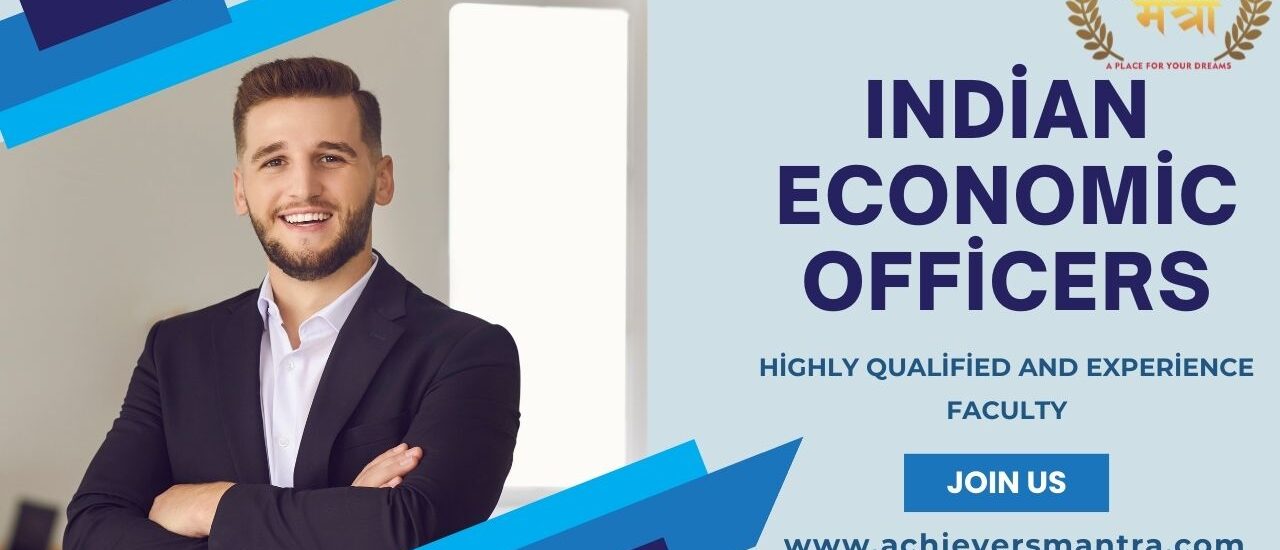Indian Economic Service Officers: Pioneers of India’s Economic Growth
Introduction
Imagine being at the forefront of shaping a nation’s economic policies, influencing decisions that impact millions of lives. That’s the role of an Indian Economic Service (IES) officer. In today’s rapidly evolving economic landscape, the significance of these professionals has never been more pronounced. They are the unsung heroes working diligently behind the scenes to steer India’s economic trajectory. Let’s delve deep into the world of IES officers, exploring their journey, responsibilities, and the pivotal role they play in India’s development Infinity AI.
1. What is the Indian Economic Service (IES)?
The Indian Economic Service (IES) is a prestigious Group ‘A’ Central Service dedicated to economic analysis and policy formulation in India. Established in 1961, the IES was created to build a specialized cadre of professionals adept in economic planning and analysis. These officers serve in various governmental departments, contributing their expertise to shape policies that drive economic growth and development.
2. Importance of IES Officers in India’s Economic Framework
IES officers are the backbone of India’s economic policy-making machinery. Their roles encompass:
- Policy Formulation: Crafting policies on trade, finance, and industry to foster economic growth.
- Data Analysis: Interpreting economic data to provide actionable insights for decision-makers.
- Advisory Roles: Offering expert advice to ministries on economic matters.
- International Representation: Representing India in global economic forums and negotiations.
Their analytical prowess ensures that India’s economic policies are both robust and adaptive to changing global dynamics.
3. Eligibility Criteria for Aspiring IES Officers
Embarking on the journey to become an IES officer requires meeting specific eligibility criteria:
- Educational Qualification: A postgraduate degree in Economics, Applied Economics, Business Economics, or Econometrics from a recognized university.
- Age Limit: Candidates must be between 21 and 30 years of age. Age relaxations are applicable for reserved categories as per government norms.
- Nationality: The candidate must be a citizen of India, a subject of Nepal or Bhutan, or a Tibetan refugee who came to India before January 1, 1962, intending to settle permanently.
4. The IES Examination: A Gateway to a Prestigious Career
The IES examination is a rigorous process conducted annually by the Union Public Service Commission (UPSC). It comprises:
- Written Examination: Consisting of six papers totaling 1000 marks.
- General English and General Studies (each 100 marks).
- Four papers on Economics (each 200 marks).
- Viva Voce (Interview): Candidates who clear the written exam are called for an interview carrying 200 marks.
Success in this examination demands a deep understanding of economic concepts, analytical skills, and effective communication abilities.
5. Exam Pattern & Syllabus Breakdown
Understanding the exam pattern is crucial for effective preparation:
- General English: Essay writing, comprehension, and grammar.
- General Studies: Questions on Indian polity, current events, and general science.
- Economics Papers:
- Paper I: Microeconomics, Demand Analysis, and Theory of Production.
- Paper II: Macroeconomics, Economic Thought, and International Economics.
- Paper III: Public Finance, Industrial Economics, and Labour Economics.
- Paper IV: Development Economics, Environmental Economics, and State Market Interventions.
A strategic approach to each paper, focusing on core concepts and current economic issues, is essential for success.
6. Preparation Strategies for Aspiring IES Candidates
Cracking the IES exam requires a blend of dedication, strategy, and the right resources. Here are some tips to guide your preparation:
- Structured Study Plan: Allocate specific time slots for each subject, ensuring comprehensive coverage of the syllabus.
- Stay Updated: Regularly read economic journals, newspapers, and official reports to stay abreast of current economic developments.
- Practice Writing: Develop the habit of writing essays and answers to improve articulation and time management.
- Mock Tests: Regularly attempt mock tests to assess your preparation and identify areas of improvement.
Remember, consistency and a clear understanding of economic principles are your best allies in this journey.
7. Common Mistakes to Avoid During Preparation
While preparing for the IES exam, candidates often make certain avoidable mistakes:
- Neglecting General Studies and English: Focusing solely on economics papers can be detrimental. Ensure balanced preparation across all subjects.
- Over-Reliance on Coaching: While guidance is beneficial, self-study and personal analysis are irreplaceable.
- Ignoring Previous Years’ Papers: These papers offer invaluable insights into exam patterns and frequently asked questions.
- Procrastination: Delaying study schedules can lead to last-minute stress. Stick to your plan diligently.
Avoiding these pitfalls can enhance your chances of success significantly.
8. Career Path and Growth Opportunities for IES Officers
A career in the IES offers a plethora of opportunities:
- Initial Posting: Typically, officers start as Assistant Directors in various governmental departments.
- Promotions: With experience, they can rise to positions like Deputy Director, Joint Director, and Director.
- Diverse Roles: Opportunities to work in ministries such as Finance, Commerce, and Industry, or with international organizations representing India.
- Continuous Learning: Regular training programs and workshops to keep abreast of global economic trends.
The IES not only offers a stable career but also the satisfaction of contributing to the nation’s economic prosperity.
9. Real-Life Success Stories: Inspiring Journeys of IES Officers
Hearing from those who’ve walked the path can be incredibly motivating. Here are a few success stories:
- Dr. Arvind Subramanian: Before becoming the Chief Economic Adviser to the Government of India, Dr. Subramanian served in various capacities, showcasing the impact an IES officer can have on national policy.
- Dr. Ila Patnaik: An esteemed economist and former IES officer, Dr. Patnaik has contributed significantly to research and policy formulation, emphasizing the diverse roles an IES officer can undertake.
These individuals exemplify how dedication and expertise can lead to illustrious careers in the IES.
10. Conclusion
The role of an Indian Economic Service officer is both challenging and rewarding. As architects of India’s economic policies, they play a crucial role in shaping the nation’s financial and developmental landscape. For aspiring economists, the IES offers a prestigious career filled with opportunities to make a real impact. With thorough preparation, strategic planning, and unwavering dedication, achieving success in the IES examination is within reach. If you have a passion for economics and a desire to contribute to national development, the IES is the perfect career path for you!
Enroll with Achievers Mantra Coaching Classes
At Achievers Mantra Coaching Classes in Thane, Mumbai, we offer both online and offline classes to help you prepare effectively for your exams. Our expert faculty provides structured courses, mock tests, and personalized guidance to help you succeed.
📞 Call us: 9004657305 / 9769273791
📧 Email: contact@achieversmantra.com
Take the first step towards a successful banking career with Achievers Mantra Coaching Classes. Join our online and offline Topic name to enhance your chances of cracking the topic related name.





